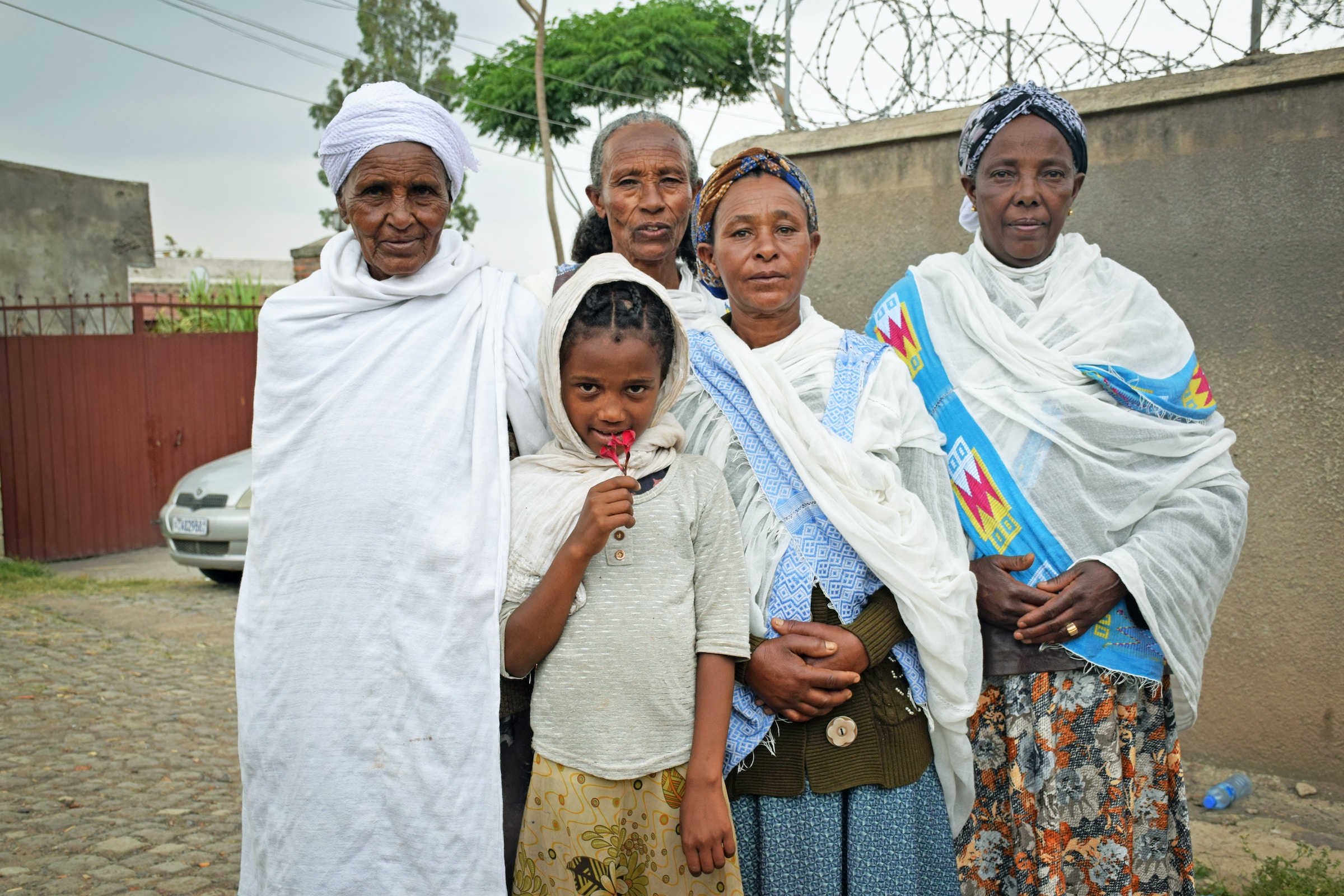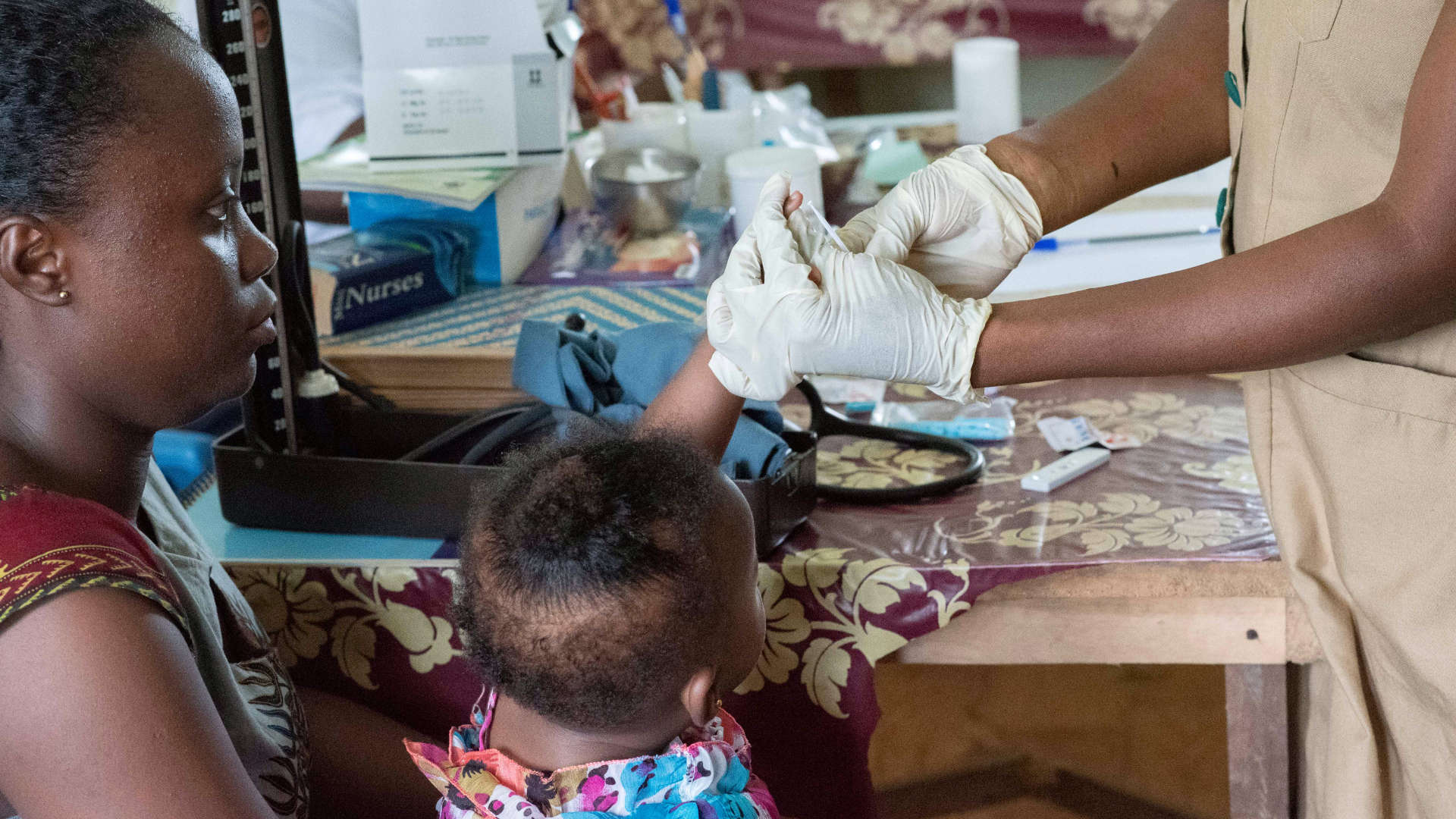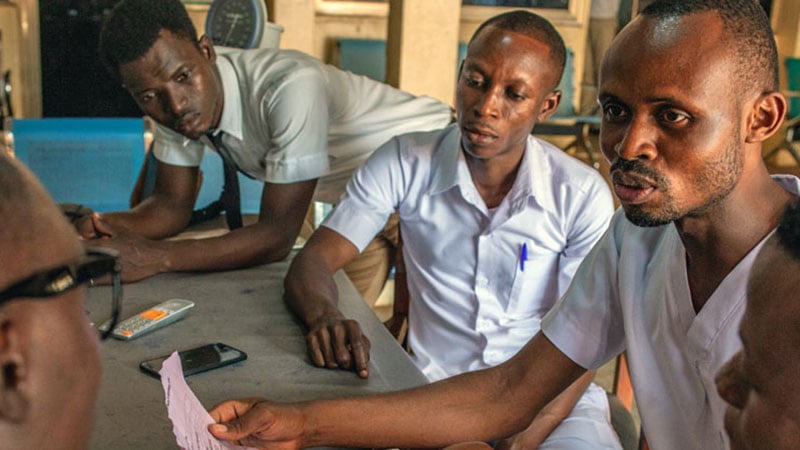
Eckhard Kleinau
Director, Research and Evaluation
Eckhard Kleinau, Director of Research and Evaluation, URC, was a co-author on the recently released journal article “Return on investments in the Health Extension Program in Ethiopia”. The article presents a comprehensive analysis of the economic impact of Ethiopia’s Health Extension Program (HEP). Initiated in 2003, the program deployed over 42,000 Health Extension Workers (HEWs) to enhance primary healthcare access, particularly in rural areas. This study is significant as it’s the first to assess the return on investment (ROI) for such a substantial human resource initiative in the health sector in Ethiopia.
Background and Methods
Ethiopia’s HEP is noteworthy for its scale and focus on training professional community nurses (HEWs) to provide essential health services. The study employs a mixed-methods approach, collecting data through surveys, interviews, and focus groups in four major Ethiopian regions. It also utilizes secondary data from the Ministry of Health and financial reports. The ROI analysis considers various program costs against benefits such as improved productivity, equity, empowerment, and employment.
Findings
The program’s impact is substantial, saving an estimated 50,700 maternal and child lives from 2008 to 2017. The benefits predominantly accrued to low-income, less educated, and rural women, who previously had limited access to higher-level health services. The ROI varied across regions, ranging from $1.27 to $6.64, indicating that every dollar invested in the program yielded returns between $1.59 and $3.71 for the HEP overall.
Value
- Increased Access to Healthcare: The deployment of HEWs significantly improved access to primary healthcare, particularly in rural and underserved areas. This expansion is crucial in a country where most of the population resides in rural regions with limited healthcare facilities.
- Economic Benefits: The study highlights the economic viability of the HEP. The ROI indicates that investing in human resources for health is not only beneficial for public health but also for economic development.
- Focus on Maternal and Child Health: A significant achievement of the HEP is the reduction in maternal and child mortality rates, aligning with global health priorities and Sustainable Development Goals.
- Empowerment and Equity: The program has contributed to increased empowerment and equity in health services. By bringing healthcare closer to the community, it has reduced barriers for marginalized groups, particularly women and children.
- Model for Other Countries: The Ethiopian HEP serves as a model for other countries, especially in Africa, demonstrating how large-scale health worker programs can be effectively integrated into national health systems.
- Policy and Practice Implications: The findings provide valuable insights for policymakers and health practitioners. They underscore the importance of investing in human resources for health and the need for context-specific adaptations to maximize the impact of similar programs.
- Future Research and Development: The study suggests areas for further research, particularly concerning the quality of care and the extension of HEWs’ roles to address broader health issues beyond maternal and child health.
Promise for Sustainable Systems
The study concludes that the HEP demonstrates significant promise for sustainable system redesigns in similar settings and underscores the value of Ethiopia’s Health Extension Program as a significant public health initiative with profound implications for health policy, economic development, and global health strategies. The program not only improves health outcomes but also offers considerable economic benefits. It serves as a potential model for other nations, showing the effectiveness of integrating large-scale human resources into government health programs.



